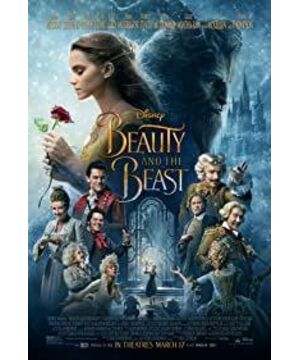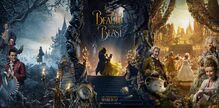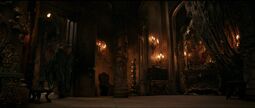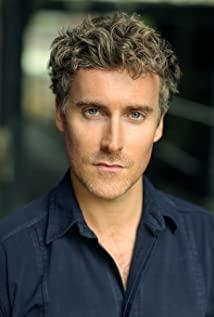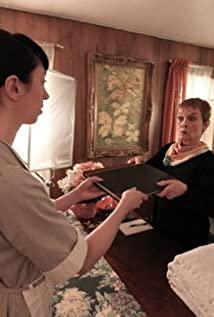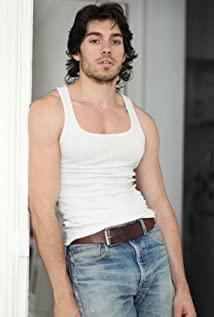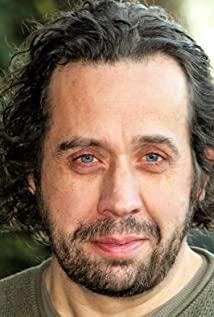First of all, I think, as a cautious person, seeing Belle hesitating and then hesitating and finally turning around to save him when Beast was attacked by wolves, I was really going to collapse - a person because your dad picked a flower ( Although it is not right for your dad to go to someone else's house to pick flowers) I will put your dad in an iron cage and put your dad out. At this moment, isn't your idea not to hurry home and see if your dad is doing well, but to turn around and save the gangster?
Anyway, I think it can be used as a negative example in the life safety education materials for primary and secondary school students.
It may also be explained from one side that a cautious person like me is destined to fail to seize the opportunity to marry a prince and live in a big castle.
I agree with what Xiaoxing said, and treat it as a simple and beautiful fairy tale. In the end, good and evil will be rewarded. There is a crystal chandelier in the middle, and it is enough to enjoy the dream for two hours. But if you really want to associate it with feminism, it is not only unnecessary, but even contradictory.
The first published edition of Beauty and the Beast was by French writer Gabrielle-Suzanne Barbot de Villeneuve in his 1740 work La jeune in américaine, et les contes marins. The movie pays great attention to this point, not to mention the architecture of the North French region of the eighteenth century, even the home and clothing of the nobles (skirts with huge panniers, men with white face, blue dressers with gold patterns, etc. ) and even Belle's father's occupation (a craftsman watchmaker, who took his wife and daughter to Paris in pursuit of art), all refer to the style characteristics of the Baroque period.
Another careful reference in the film is the death of Belle's mother. It is not difficult to see from the dress of our familiar good friend the beak doctor that Belle's mother died of an incurable plague, and the Marseille Plague that began in 1720 may indeed be the culprit.
It is also worth mentioning that although Disney follows Disney conventions, there are many black faces in the actors. But in eighteenth-century France, regardless of the common people, some noble families did have black butlers. So although this is a politically correct card, it does not violate history.
Having said that, I would like to mention the fact that the role of Hermione in the Harry Potter plays used black actors. Although many people thought it was overkill at that time, I think that political correctness will never be overkill.
But for the stage play Hermione, I don't think it's necessary to change to a black actor, but it's actually good to change. This is a wrong and a good thing.
When it comes to the movie, the heart goes back to the heart, the protagonists speak English with a British accent when they speak, which also makes people feel that it's okay, it's useless. (Although later the furniture speaks English more or less with the accents of their origins, but the half-like imitations make people feel a bit offensive).
All right, all the compliments are over.
Beauty and the Beast is a work that can't be praised, even though I raved about Disney once a month or so ago. Born in the early 18th century, it was originally a story that followed the trend of the times and shouldered the task of maintaining stability. If it is interpreted from the perspective of viewing traditional fairy tales, then this movie can be regarded as a near miss-the beast is not rough and simple. , the two fell in love with each other because Belle mentioned Shakespeare and then the Beast thought that God you should read some greater works - you see, I can't guarantee that I will not be tempted, after all, the vision is here, seeing more than I generally admire people who read a lot. The succession and transformation are complete. Even if Belle turned around to save the beast as I mentioned at the beginning of the article, it can be interpreted in good faith as the simple and kind folk customs.
However, because Miss Watson insists on emphasizing Belle as a feminist, I also find it a little funny.
Belle was born into a well-to-do family (the 18th century European art craftsmen, although not high in status, are indeed higher than the peasant workers), in a film said and I quote if a woman is not married, she will die after her father's death In a society where women cannot work independently, Belle can only be reduced to going to the street to beg for food, Belle can read Shakespeare's idle books, her maverick is probably reflected in her unmarried and love to read books, and she is far and near. Famous for being beautiful.
I think that after reading the script (about ten minutes in the opening), Watson can still firmly say that Belle is a feminist, which makes people a little doubtful of her reading comprehension ability.
Although the film tries its best to straighten out the logic, the wandering spirit of Stockholm Syndrome still lingers in every corner of the castle.
Belle loves Shakespeare, loves Romeo and Juliet. However, the beast was a prince, of different classes, and he naturally has access to more resources, so it is not surprising that he has read more books. The channels for obtaining information are completely incomparable, and Belle's reverence and even love are understandable. (It also proves the importance of ensuring that members of society receive equal education from one side.)
As the owner of the castle and Belle's prisoner, the beast gradually became closer after finding a common hobby with Belle through reading. Belle even dared to rub a snowball and throw it at him. Playing around... Friends, once again, someone locked up your dad just because he picked a flower and put your life in exchange for your life. In the end, you still fell in love with this person. I think it's really Stockholm Syndrome. .
What did such a kind, tolerant, filial, love-reading and beautiful girl finally get in return? Of course, she married a prince and lived in a castle and lived a life surrounded by servants (maybe can read every day).
Although I have nothing to do with a children's film, I just feel that there is no need to forcefully pull the feminist to wash the floor. It's barely a love story, but definitely not an independent woman's story.
I don't hate the little girl Emma at all, and I also pay attention to her contribution to feminism in real life. I just think that the shaping of the character does not need to be consistent with my own pursuit. Good people will also become metamorphic murderers, and bipolar disorder will also have the opportunity to interpret gentleness as water. This kind of forcibly linking one's work to one's own pursuits is very unprofessional.
And whether this unprofessionalism is a momentary dizziness due to Emma hitting the glass ceiling of a strangely out-of-the-box industry, I won't go into it.
I hope one day she can stand her ground and say, I'm a feminist but I'm just playing a stupid and brainless character, please separate my claims from my work.
As for this movie, which is banned in Russia because it involves homosexual subjects, I won't start talking about it. Homophobia and patriotism are two signs of social instability.
Finally, I want to say that it was more romantic in ancient times. If you want to impress someone, you can also open the door of the study and show the other person the collection of books that reaches the ceiling at home.
What to do in the future? The Beast took out his Kindle, turned on the screen, and said Belle, look, I have a lot of books. Belle also took out a Kindle, thinking who doesn't have one.
View more about Beauty and the Beast reviews


